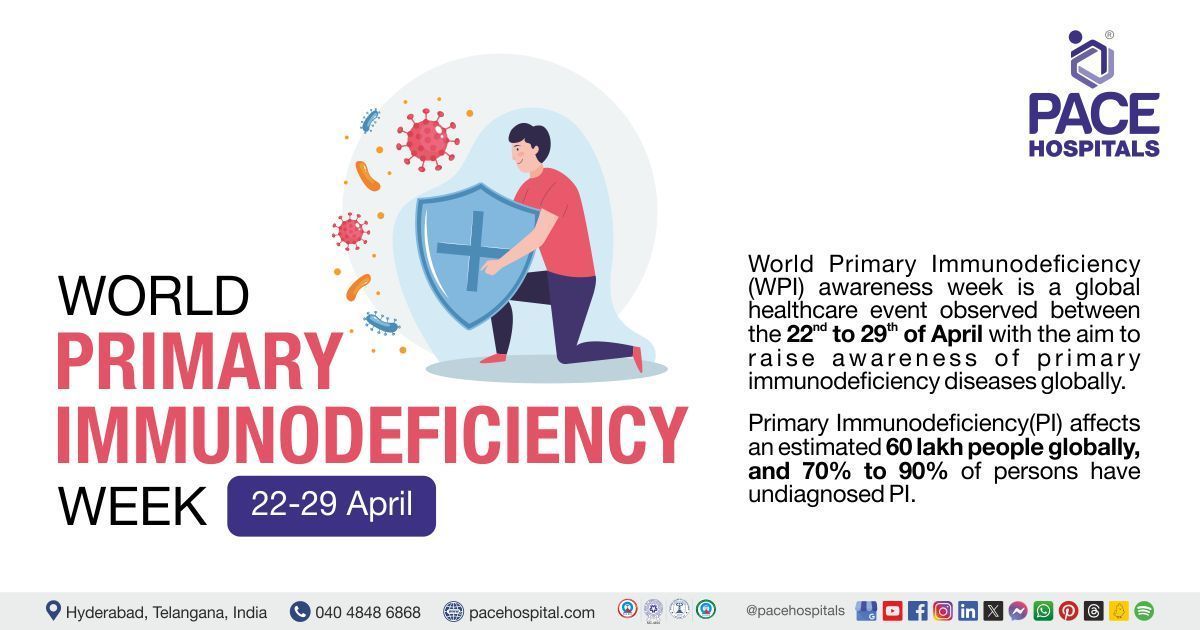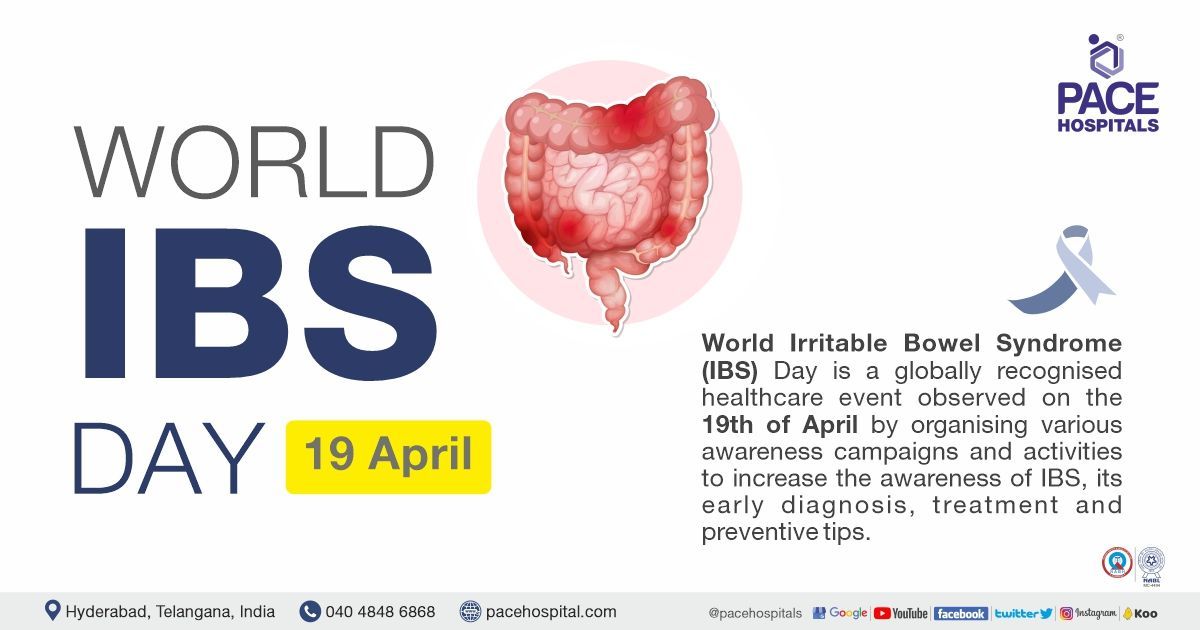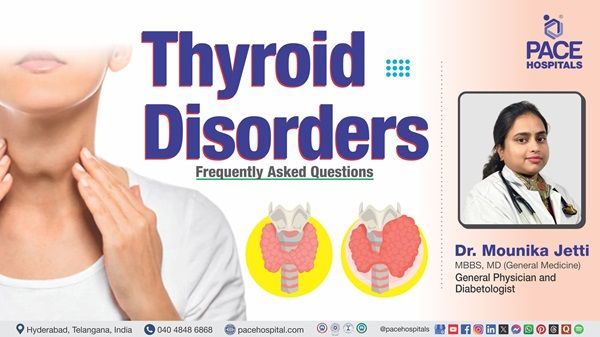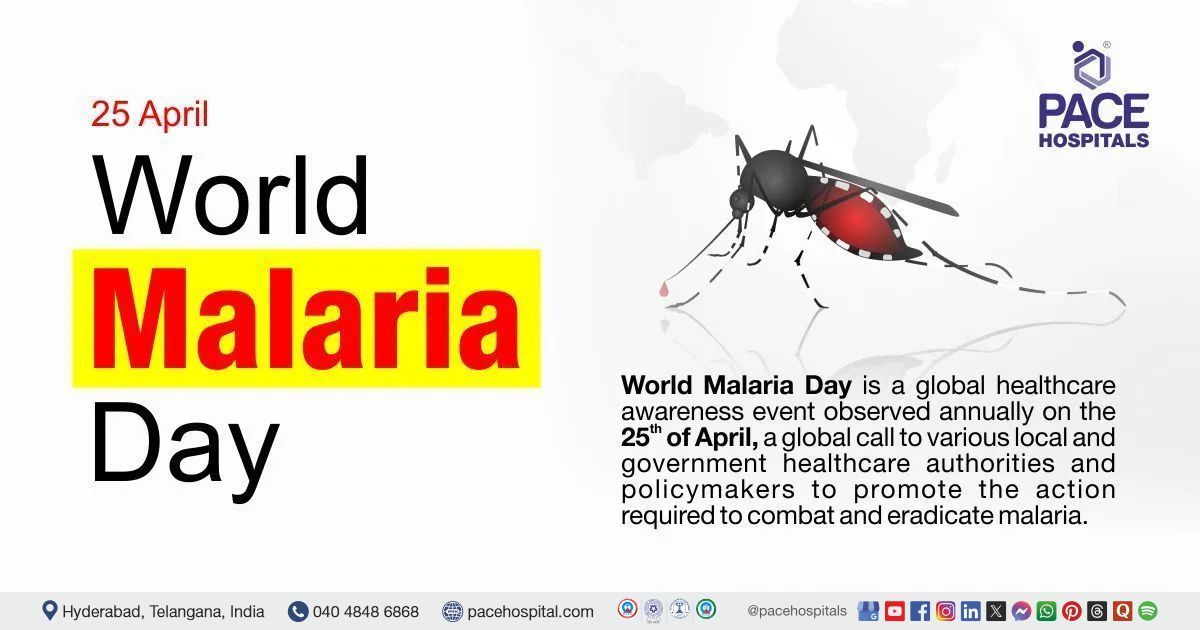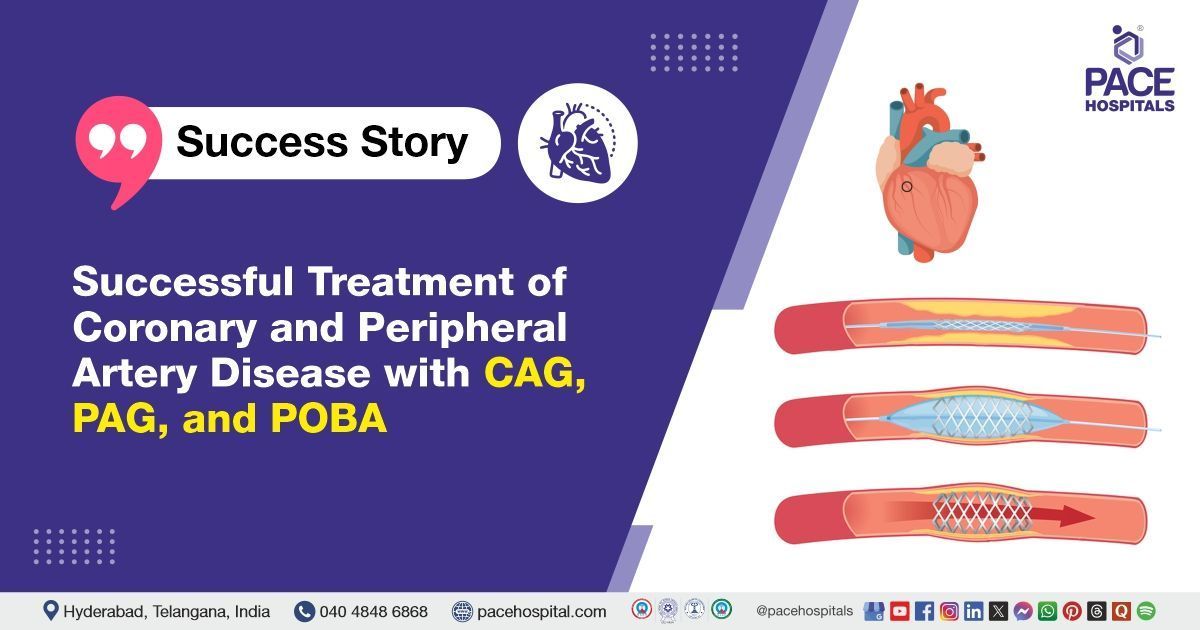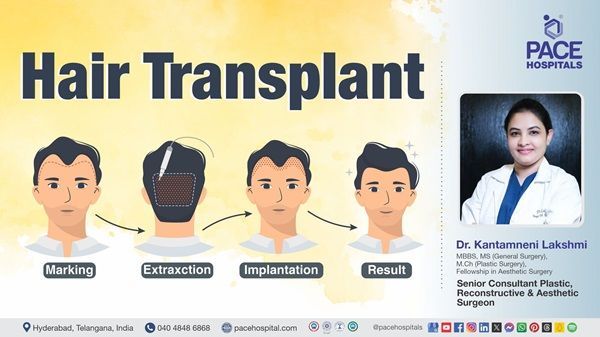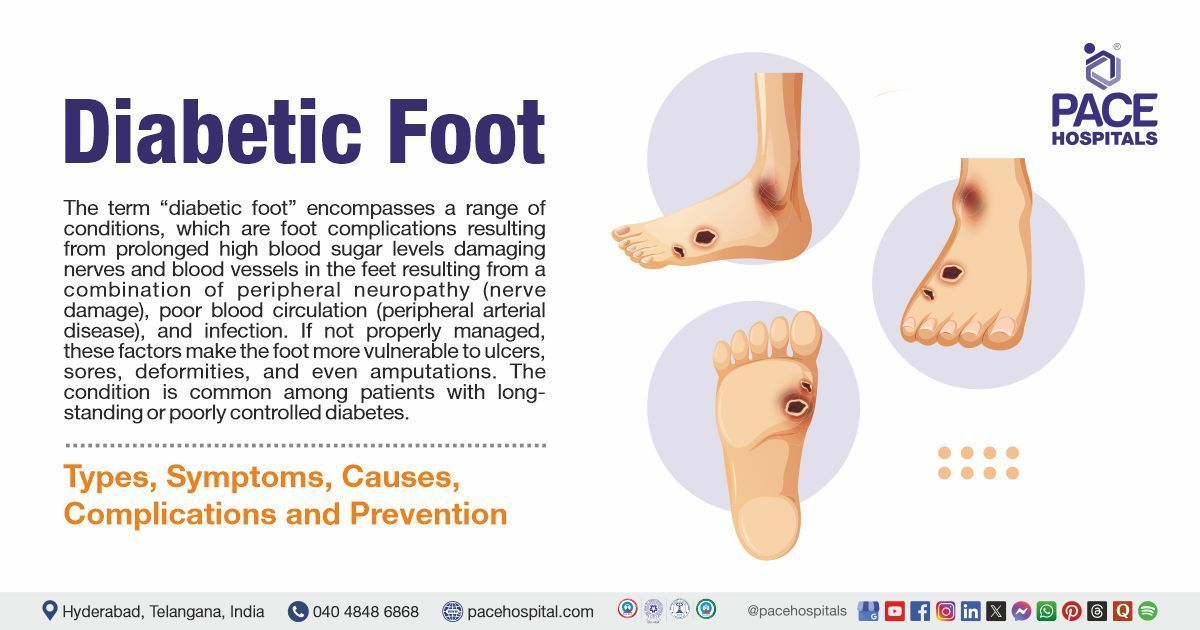World Primary Immunodeficiency Week 22 - 29 April, Theme & Importance
World Primary Immunodeficiency (WPI) awareness week is a global healthcare event observed between the 22–29 of April with the aim to raise awareness of primary immunodeficiency diseases globally.
Various international and local groups have joined together in this global event through multiple campaigns and activities to emphasize the importance of addressing the challenges, such as; improving the quality of life, early diagnosis, wide availability of effective treatments and encouraging communication and advocacy concerning primary immunodeficiency.
Immunodeficiency diseases are rare and genetic disorders that arise when a person's immune system is compromised or does not operate properly. When a deficit in the immune system is inherited (transmitted through the genes), it is called primary immunodeficiency. Primary immunodeficiency (PI or PID) comes in approximately 450 different forms, varying degrees of severity, affecting various immune cells such as B-cells, T-cells and granulocytes.
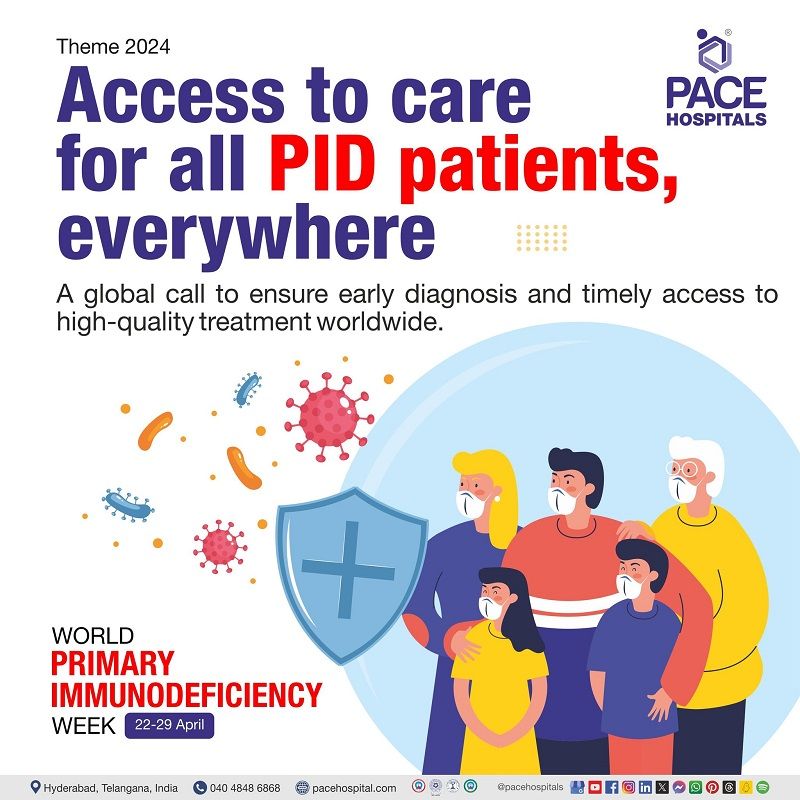
World Primary Immunodeficiency Week 2024 Theme
This year 2024, the World Primary Immunodeficiency Week theme is “Access to care for all PID patients, everywhere”. This theme aims to make early diagnosis and timely access to high-quality treatment a reality around the world.
Year by year, the theme of World Primary Immunodeficiency Week
- WPI Week Theme 2023: Turning real-world data into knowledge for better primary immunodeficiency care
- WPI Week Theme 2022: Early diagnosis & newborn screening, treatment & care, research and preventative medicine
- WPI Week Theme 2021: Early diagnosis and access to careWPI Week Theme 2020: All about celebrations
- WPI Week Theme 2019: Patient centricity
- WPI Week Theme 2018: Early testing and diagnosis
Importance of World Primary Immunodeficiency - WPI Week
Primary Immunodeficiency (PI) affects an estimated 60 lakh people globally, and 70% to 90% of persons have undiagnosed PI. Various signs and symptoms can aid in detecting primary immunodeficiency, which are widespread in many types. Although it varies from person to person, these signs can help doctors to conclude the diagnosis. It is equally critical that family caregivers and the general public to be aware of symptoms and know when to seek medical attention.
Early detection and patient-specific treatment can prevent further problems and improve the patient’s quality of life with primary immunodeficiency. This can be achieved by developing new therapies to treat PI and providing the general public with better access and quality information about primary immunodeficiency.
History of World Primary Immunodeficiency - WPI Week
In 2011, the first World PI Week was celebrated. Since its inception, World PI Week has been observed in over 80 countries, with the participation of thousands of individuals and the coverage of local, national, and international media.
Prevention of Primary Immunodeficiency Disorders
Immunological diseases cannot be prevented, as they are of genetic origin. However, if a child or adult is immunocompromised, the following measures can aid in preventing further infections, such as:
- Consumption of a healthy and balanced diet
- Taking timely vaccinations
- Daily exercise to maintain the body fitness
- Brushing the teeth twice a day
- Healthy sleep and maintenance of daily sleep cardiac rhythm.
- Good food hygiene practices
- Avoidance of crowded areas and aversion from people with severe coughs/infections
- Management of stress by undergoing daily meditation and yoga
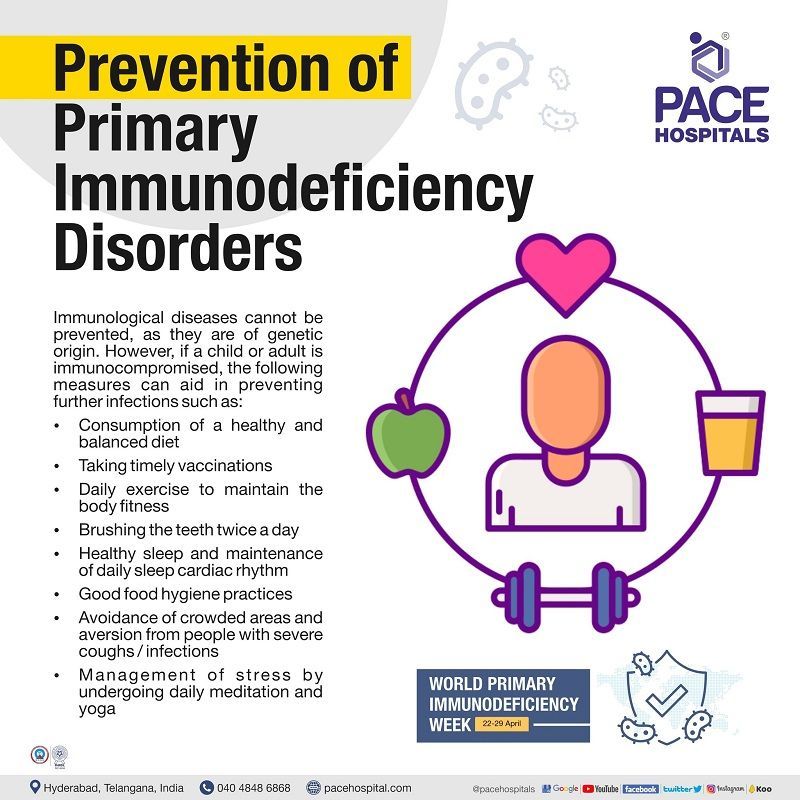
Share on
Request an appointment
Fill in the appointment form or call us instantly to book a confirmed appointment with our super specialist at 04048486868

